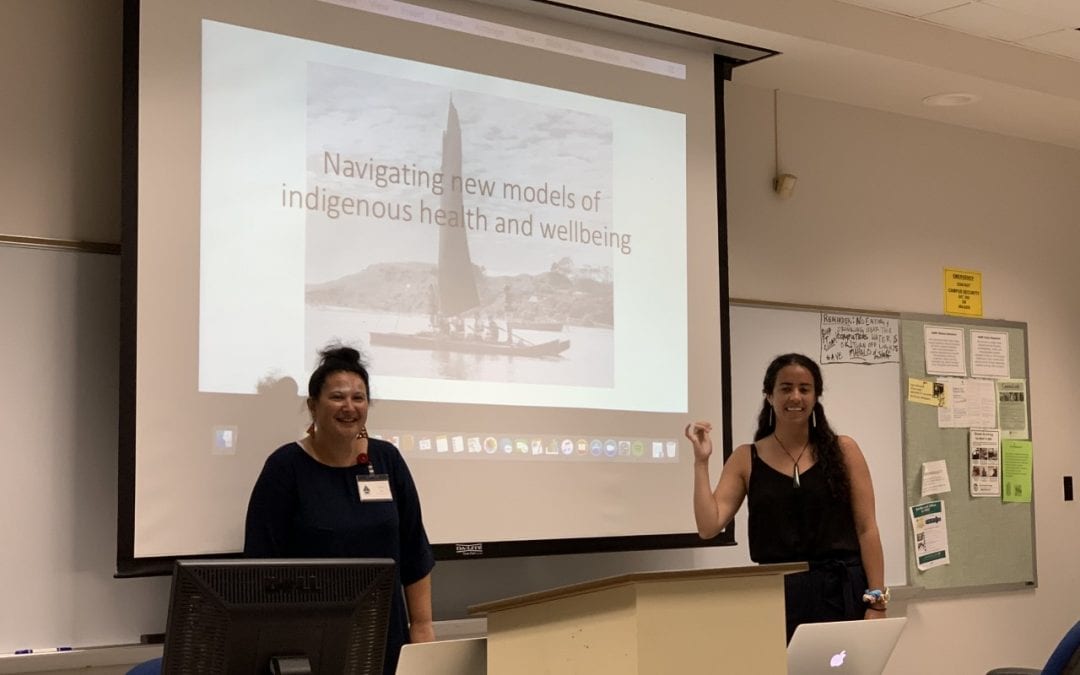(Picture caption: Justine Camp, left, and Terina Raureti present at the He Au Honoa: Indigenous Research Conference, in Hawaii.)
Research Fellow for A Better Start E Tipu e Rea’s Big Data theme Justine Camp’s hard mahi has come to fruition, with an opportunity to speak at an indigenous research conference in Hawaii.
Staged from March 19-22, He Au Honoa: Indigenous Research Conference on Maui, is an extension of He Manawa whenua, a conference usually hosted in the Waikato.
Justine is Kai Tahu, and was born and raised in her rohe of Araiteuru, in Dunedin.
After completing a Social Work degree at the University of Otago, Justine did her Masters looking at the impact of Type II Diabetes on Whānau which led her to doing her PhD, which she will submit at the end of August.
Justine is part of A Better Start E Tipu e Rea’s Big Data team, and is a Vision Mātauranga Research Fellow.
“Part of my role to make sure the use of data is not harmful to Māori.
“In addition I am leading the mahi with Ngāti Whātua kī Ōrakei for the Challenge, that has begun with a focus on iwi education data, analysing it.”
Justine’s PhD thesisis a Māori and Pacific maramataka mapping project looking at patterns of self-harm by mapping them over a maramataka (Māori lunar cycle).
“I have worked with a Hawaiian and two Māori master navigators and created a whānau health compass (adapted a star compass) and have used it to guide the wellbeing of whanau,” she explains.
“One of the cool measures for the compass is the maramataka and it is helping whānau to see the impact of that on their wellbeing.”
Interviews suggest the compass works and whānau are able to identify a baseline of their well-being, and notice patterns very quickly, she says.
Together with Terina Raureti also from the University of Otago, and Tui Gilling (Te Whanau a Rutaia), Justine presented at a workshop at He Au Honoa: Indigenous Research Conference on Navigating new models of indigenous health and wellbeing.
I was really excited about presenting my new model to both Māori and Hawaiian communities at the conference, since they helped with the creation of it.”
A bonus of travelling to Hawaii was the opportunity for Justine to visit the Maramataka Research Centre located there.
Her visit to Hawaii has been extremely useful, she says.
“It is always helpful to make connections, and get feedback on your mahi to help you grow as a researcher.”

